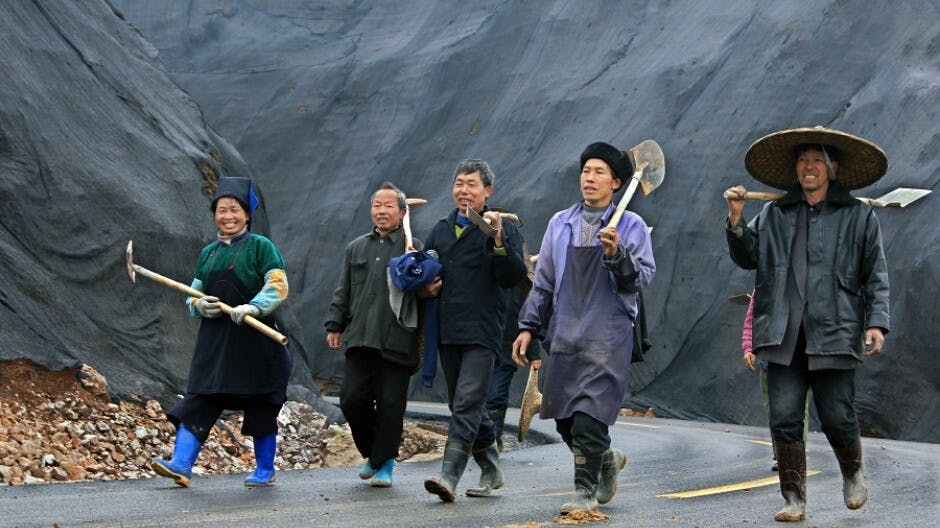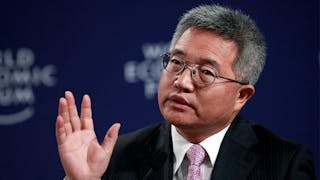(中文摘要:中國於7月頒布戶口制度改革指引,市場觀望此舉將向提升勞工流動性及生產力踏出重大一步,並同時將農村地區的「呆滯資本」鬆綁。然而在現實中,若中國要全面實行改革,將需把整個體系推倒從來,因此,相信現在成效將會相當有限。改革指引很大程度上只是循序漸進的,而非要一步到位。)
China issued reform guidelines in July relating to its decades-long household registration hu kou system. The market sees this as a significant step towards increasing labour mobility and productivity gains and unlocking “dead capital” in the rural regions. In reality, the current reform’s impact is likely to be very limited because to achieve the full benefits, China needs to scarp the system altogether. But Beijing knows that such a move would face severe resistance and is thus implausible in the short-term. So the reform guidelines are more a sign of incremental progress than a big step forward.
Hu kou system: a differentiated policy upon rural-urban distinction
China has a dual hu kou system that has divided people into urban and agricultural households since 1955. Different hu kou holders enjoy different social benefits. Urban hu kou holders receive better education, medical care and pension than their rural counterparts, who are entitled to farmland use rights and are allocated rural land to build houses. A chapter in the reform document says China will set up a unified hu kou system by removing the rural-urban distinction. Some analysts have jumped to the conclusion that this would mean giving rural residents the same rights as urban residents in terms of employment, education, medical care and housing, which would greatly facilitate urbanisation.
This is not entirely the case. The reform does not totally remove the rural-urban distinction and, thus, does not remove all the barriers to migration and labour mobility from rural to urban areas. The document states that a system of “residence permits” would be set up to allow qualified migrants to enjoy urban services and social benefits. Whether a rural emigrant is eligible and to what extent he/she can enjoy these benefits depends on how long the person has lived in the city and how long he/she has contributed to social insurance programmes. Anyone who does not have a residence permit will still not be entitled to equal urban benefits, whatever type of hu kou the person holds.
Granting residence permits may boost GDP Growth
This dual hu kou system makes rural migrants feel discriminated against and hinders migration within the country. The reform is trying to narrow the difference between the two types of hu kou. It is intended to be implemented initially in towns and small cities, where a resident who has lived long enough to get a residence permit can apply for an urban hu kou and enjoy urban social welfare benefits.
China plans to urbanise 100 million rural residents and migrants by 2020. Official data shows an urbanisation rate of 51%. This still lags the rate in many other countries which boast a rate of more than 70%. Crucially, China’s genuine urbanisation rate is only about 32% when adjusted for the 260 million migrant workers, who work and drift between cities and never contribute effectively to urban spending (as they tend to save and send the money back to their hometowns). Granting residence permits to these migrant workers could effectively help boost GDP growth via investment and consumption spending.
Hu kou reform: easier said than done
Expanding the hu kou reform to its true form (i.e. eliminating the rural-urban difference and, eventually, the hu kou system altogether) is easier said than done. Urbanisation will require all levels of governments to spend more on social welfare and construction. However, under the current asymmetrical budget structure, local governments pay for 80% of their fiscal spending; they have to remit 100% of their fiscal revenues to the central government but only get 40% of that back in the form of fiscal transfer. Thus, many local governments are financially strapped and are putting up strong resistance against hu kou reform that would facilitate urbanisation.
Ultimately, hu kou reform cannot succeed without parallel land reforms that allow farmers to trade their farmland and transfer land titles in the open market to unlock their “dead capital”. Medicare and pension programmes will also have to be unified nationwide so that people can enjoy equal services wherever they in China. All these involve fiscal, land and social welfare reforms, which will take longer than many observer may have expected.








































